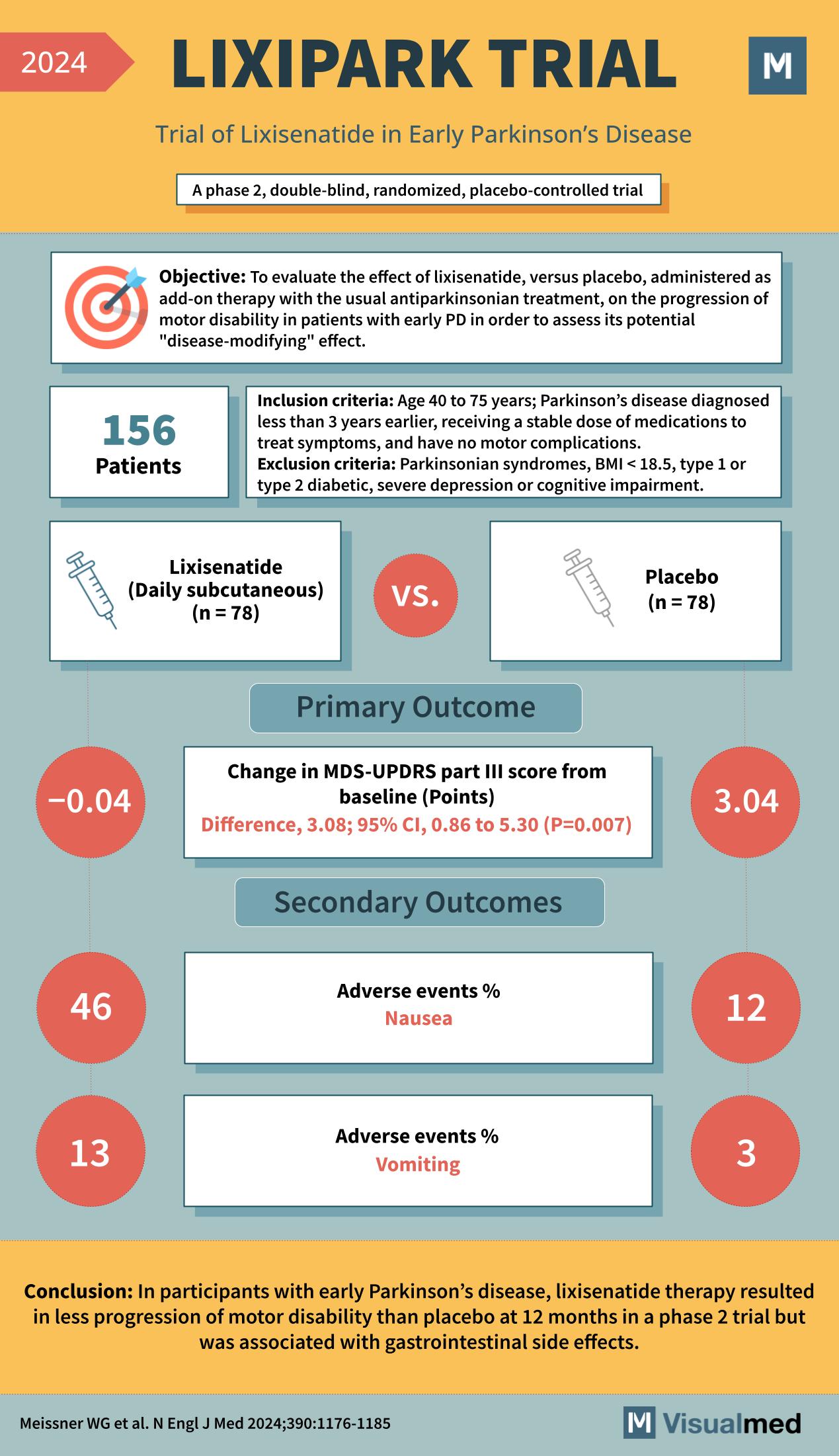
- Year: 2024
- Title: LIXIPARK TRIAL
- Subtitle: Trial of Lixisenatide in Early Parkinson’s Disease
- Trial Type: A phase 2, double-blind, randomized, placebo-controlled trial
Objective: To evaluate the effect of lixisenatide, versus placebo, administered as add-on therapy with the usual antiparkinsonian treatment, on the progression of motor disability in patients with early Parkinson’s Disease (PD) to assess its potential “disease-modifying” effect.
Inclusion Criteria:
- Age 40 to 75 years
- Parkinson’s disease diagnosed less than 3 years earlier
- Receiving a stable dose of medications to treat symptoms
- Have no motor complications
Exclusion Criteria:
- Parkinsonian syndromes
- BMI < 18.5
- Type 1 or type 2 diabetic
- Severe depression or cognitive impairment
Participants: 156 Patients
Treatment Groups:
- Lixisenatide (Daily subcutaneous) – 78 patients
- Placebo – 78 patients
Primary Outcome:
- Change in MDS-UPDRS part III score from baseline (Points)
- Difference: 3.08; 95% CI, 0.86 to 5.30 (P=0.007)
Secondary Outcomes:
- Adverse events % Nausea: Lixisenatide 46%, Placebo 12%
- Adverse events % Vomiting: Lixisenatide 13%, Placebo 3%
Conclusion: In participants with early Parkinson’s disease, lixisenatide therapy resulted in less progression of motor disability than placebo at 12 months in a phase 2 trial but was associated with gastrointestinal side effects.
Reference: Meissner WG et al. N Engl J Med 2024;390:1176-1185